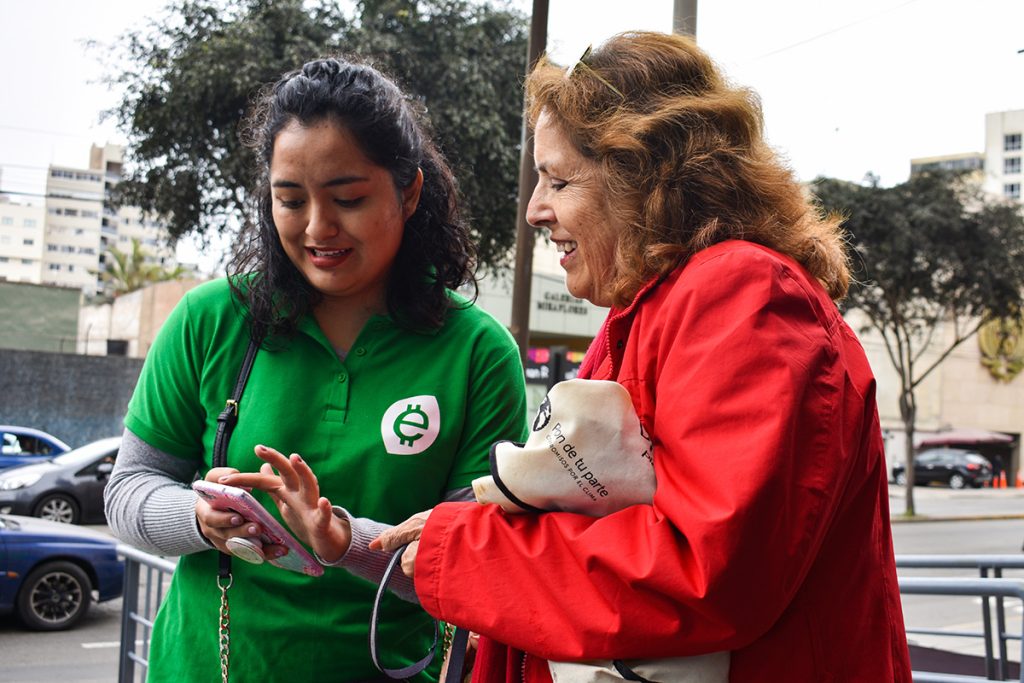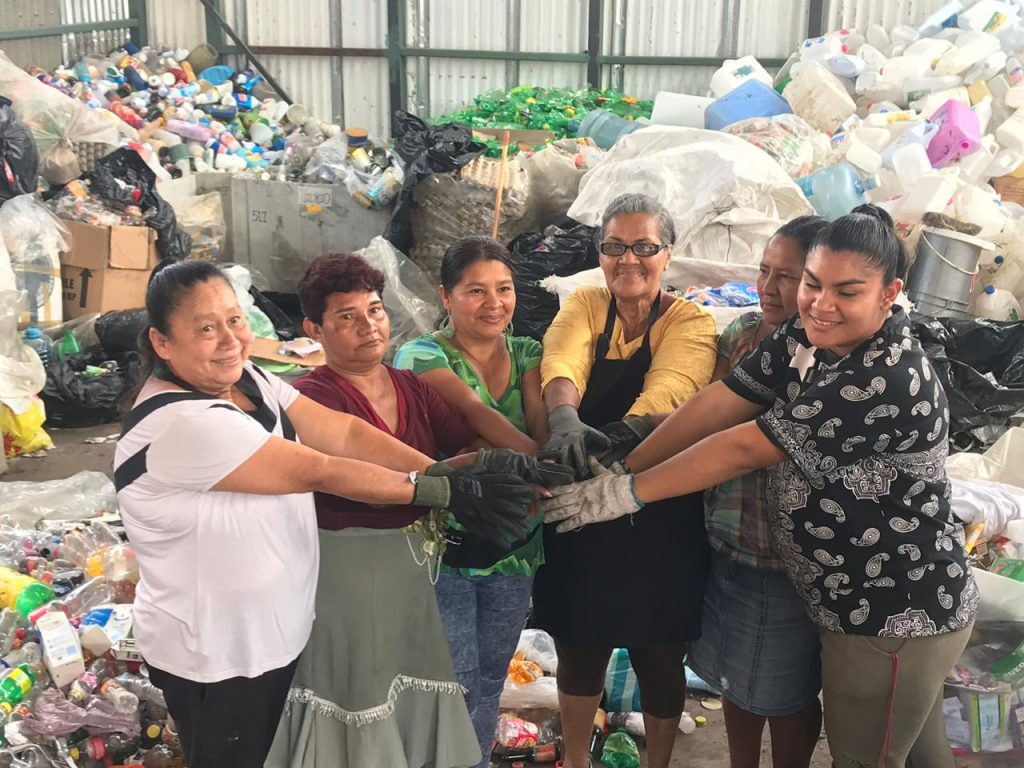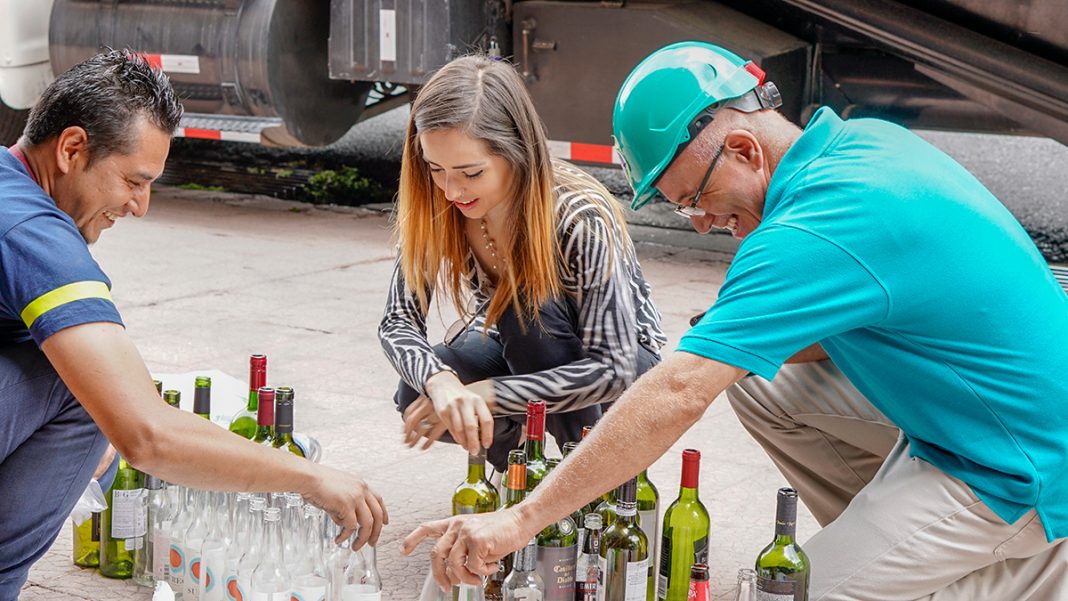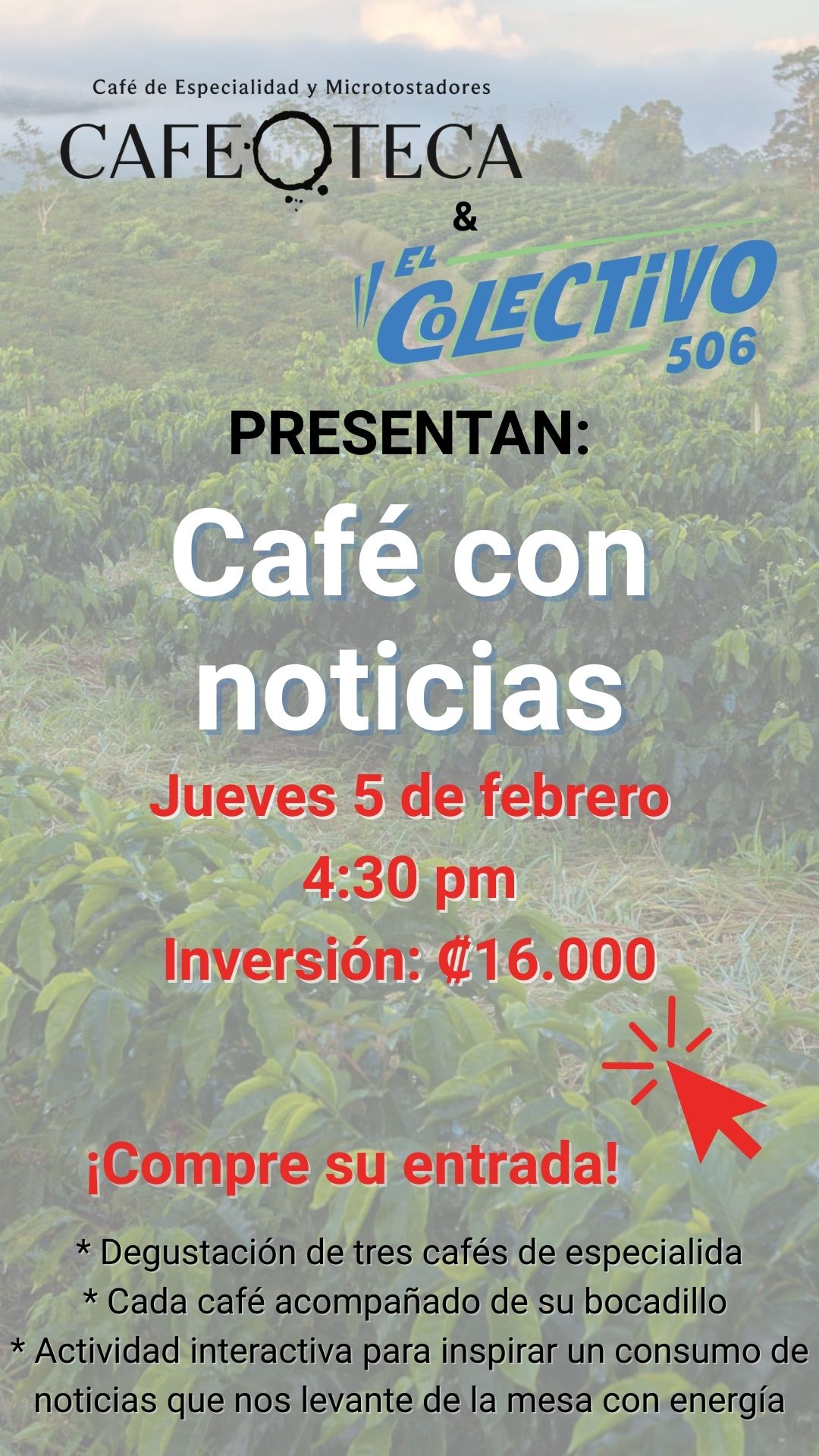The ecoins program emerged in 2018 with the goal of offering a solution to a real need: the comprehensive management of solid waste. On this path, we always had two essential aspects in mind. One was to create a system that allowed the circularity of recovered materials; the other was to center communication as the differentiating factor in an environmental project focused on the circular economy.
Six years after its launch, ecoins has evolved in ways that we never foresaw. Far from giving us a feeling of lack of control, this has shown us that the program has the flexibility to adapt to changes very quickly; to respond to real needs, not fabricated ones; and to achieve the vital rhythm of an evolving creature in the digital age.
All of this makes ecoins a very unique program. It doesn’t depend on “artificial respiration” to maintain itself, as is often the case with many social and environmental programs. Rather, ecoins works autonomously with the responsible support of a team that monitors it and guides its steps, but without interfering in its natural evolution.
To understand ecoins, you have to understand its history. That’s why, circling back to 2018, I need to point out that much of its origin comes from intuition and daring. We did not take into account similar experiences to establish parameters of comparison and paths of action based on what others had done in the past. With the freedom of the explorer, but with the uncertainty of the pioneer, we decided to launch the program and test several hypotheses:
First, that percentage of materials that can be recovered within a solid waste management program is proportional to the incentives that motivate the final consumer to return recoverable materials to the value chain.
Second, that strategic communication about accessible ways to recycle waste is essential to encourage the delivery of recoverable materials in adequate conditions for reuse.
And third, that digitalization and massive access to mobile devices allows us to create an interactive system capable of integrating various links of the value chain of recoverable waste—from the final consumer, to waste managers, to the companies that use the recovered material.
That’s how we started the program—with the certainty that an initiative like ecoins was necessary. Along the way, we answered questions that arose after we started getting results.
A few weeks after starting ecoins, nearly 25,000 people had signed up. The results we obtained helped us confirm that the hypotheses we had proposed were correct; we were showing it with hard data. By then, we had already advanced in the development of our mobile application. We thought that the efforts we had carried out in Costa Rica had been effective, and that there would be the possibility of promoting similar actions in other countries, this is how we started pilot initiatives in Panama, Peru , Guatemala and El Salvador.

2020: Time to show our resilience
Then came 2020 and the pandemic. As for most people, businesses and all types of organizations, it was a very challenging time and a litmus test for the resilience of ecoins. Many collection centers closed down as a health safety measure. As a result, most of our delivery points for recoverable materials were unable to continue providing their services.
Our response was the creation of the “ecoins at home” model to counteract the temporary closure of collection centers. It gave people who wanted to recover their waste the option to leave it outside their homes—clean, dry, and separated in a bag marked with their personal data—so that it could later be collected through municipal routes. In exchange, they would receive their ecoins within eight days once they sent an image documenting their contribution to the program’s Facebook page.
Beyond the volume of recovered material, finding alternatives in the midst of the crisis was very significant. It showed the program’s ability to adapt to extreme situations in which versatility is key. This experience taught us that ecoins was a program that, despite its short life, was reaching a sufficient level of maturity to rethink processes and find new paths.
Circularity as canon and objective
In 2021, we decided to subject ecoins to an evaluation so we could figure out the “circularity” of the program design. We wanted to evaluate how our performance complied with the three basic principles of the circular economy: eliminating waste and pollution; circulate products and materials at their highest value; and regenerate nature. The results were very positive, having achieved the top grade of A+Circulitics by the Ellen McArthur Foundation.
This achievement was very important for us. It confirmed that we were fulfilling our purpose. We had created an effective system that promoted the circular economy and showed that there were other ways to make good use of waste—and not just waste it, creating pollution and energy loss, as happens with the linear economy model.
It’s clear that many people and organizations have noticed the coherence and consistency of the ecoins program. That has allowed us to achieve very high social participation numbers: more than 118,000 followers on social networks, more than 1,100 associated collection centers, and alliances with more than 100 local governments at the regional level.
In addition, we have been achieving more technological advances—for example, the use of blockchain technology for ecoins, along with constant improvements to our mobile application and web platform. This has also increased our base of registered users, which now stands at more than 110,000 people and their families.
The incorporation of new technologies has proved essential. We’ve focused on a vision of waste traceability based on barcodes, creating opportunities for consumers to access a geolocation system where they can find the closest dropoff points for a specific piece of waste.
We’ve also launched new pilot programs in other countries such as Colombia, Nicaragua, Argentina, and Honduras in a constant search to cross borders and increase the scope and impact of the circular economy on a regional scale.
To date, ecoins has been used to recover nearly 9,000 tons of waste through recycling. However, we know that we cannot stop at recovery and recycling alone. The circular economy reaches deeper areas that go to redesign, reduction, reuse, repair and renewal.
That’s what led us to develop in a new field with enormous potential, derived from the “right to repair.” This is the creation of the first repair directory in Central America for all types of products. Once again, this is a path that must be followed as a society and that requires a new leap of faith inspired by the conviction that it is necessary to cut the thread of waste and give the owners of objects in poor condition the opportunity to provide a new life to their material goods. Such an effort would also promote multiple economic chains based on repair services, thus creating new employment opportunities and value generation.
The ecoins program offers comprehensive solutions to companies committed to sustainability and extended producer responsibility through our Affiliate Memberships. Our advanced technological system, supported by a network of six-year strategic alliances in the sector, allows organizations to more effectively address the challenges of the circular economy. Companies will be able to access tools and resources to efficiently manage their recycling processes, reduce their environmental footprint, and comply with extended producer responsibility regulations.

For El Colectivo 506, is an honor to have ecoins as one of the sponsors of our April 2024 edition, “Recycling closes the circle.” For more information, you can write to [email protected], or visit the ecoin game and ecoins website to learn more about the program.






